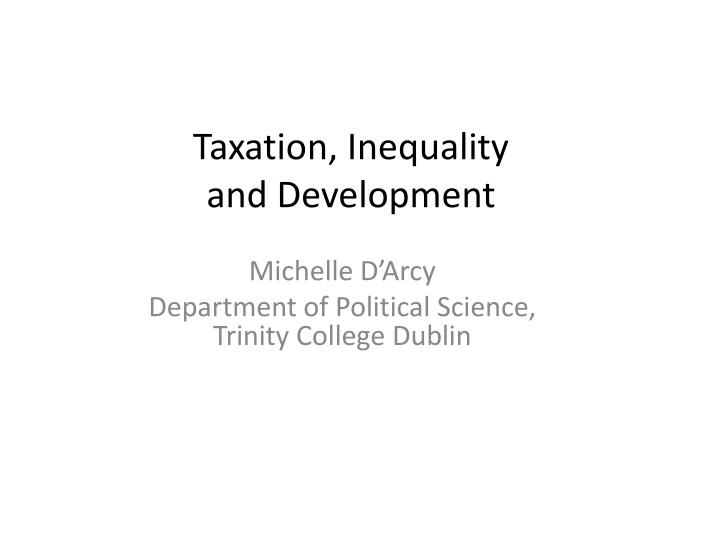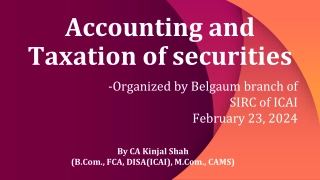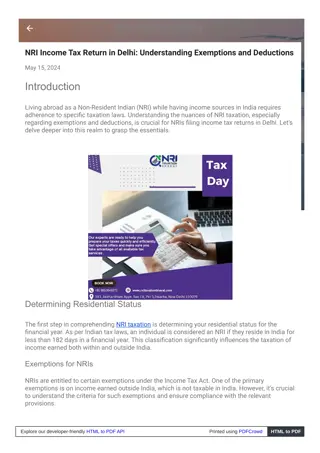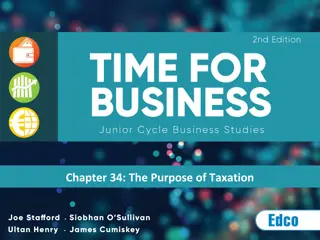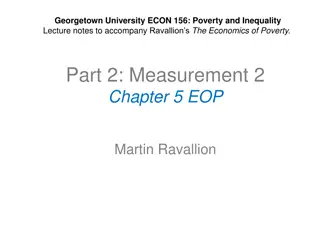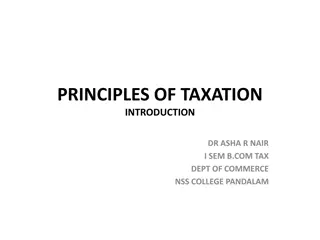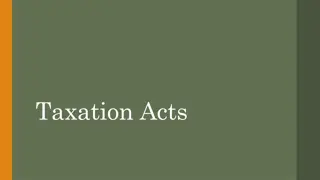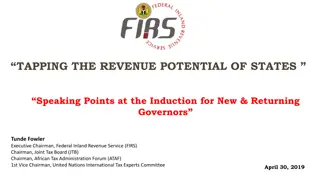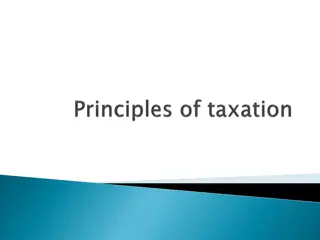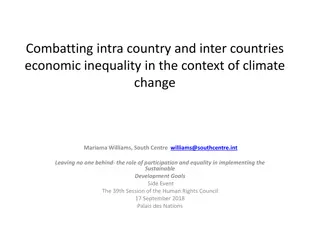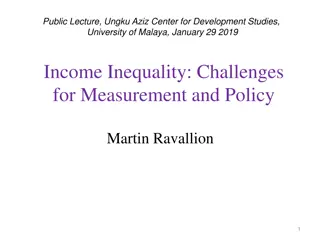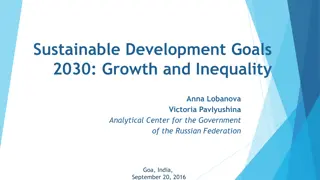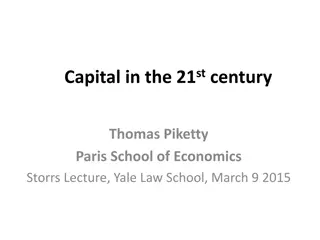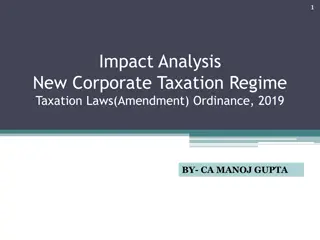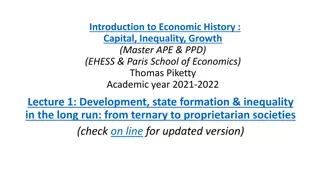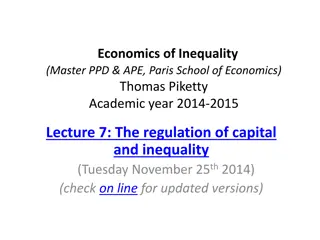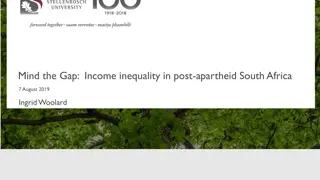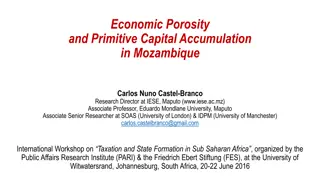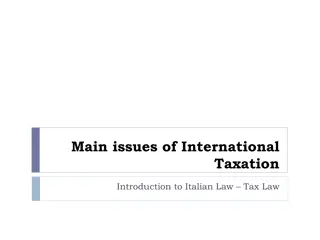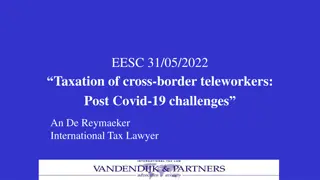Taxation, Inequality, and Development Insights
This content delves into the dynamics of taxation, inequality, and development, emphasizing the impact of fiscal contracts, redistribution levels, and global perspectives. It discusses the relationship between citizens and the state, the challenges of tax evasion, and the need for visible financial flows for sustainable development.
Download Presentation

Please find below an Image/Link to download the presentation.
The content on the website is provided AS IS for your information and personal use only. It may not be sold, licensed, or shared on other websites without obtaining consent from the author.If you encounter any issues during the download, it is possible that the publisher has removed the file from their server.
You are allowed to download the files provided on this website for personal or commercial use, subject to the condition that they are used lawfully. All files are the property of their respective owners.
The content on the website is provided AS IS for your information and personal use only. It may not be sold, licensed, or shared on other websites without obtaining consent from the author.
E N D
Presentation Transcript
Taxation, Inequality and Development Michelle D Arcy Department of Political Science, Trinity College Dublin
Tax, Inequality and Justice Tax and spending = major instruments of redistribution Fiscal contract = citizens consent to pay tax in return for services and fiscal policy underpins relationship between citizens and state Varying Levels of Redistribution: Sweden: high redistribution, low inequality US: low redistribution, high inequality Varying fiscal contracts: Sweden: broad based regressive taxes, universal services US/Ireland: narrower more progressive tax base, limited services Most equalizing fiscal contract: everyone pays tax, everyone gets services in return
Taxation in Global South Fiscal Contract in Global South: no one is paying tax, no one is getting services Registered tax payers: 400,000 2005: 70 % of the domestic revenues from 286 large taxpayers Tax % GDP: 15% ODA % GDP: 10% Motto: We make it easy to pay tax and make lives better
Vicious cycle: An equilibrium Low incentives to comply Low tax capacity
Vicious cycle: An equilibrium Low incentives to comply Poor services
Globalization, Tax Evasion and the Fiscal Contract Tax evasion erodes fiscal contract: Less tax Less trust More corruption and clientelism Economic behaviour and financial flows need to be visible
Early Modern Sweden Swedish tax register, 1740s Cadastral map, 1628
Globalization, Tax Evasion and the Fiscal Contract Tax evasion erodes fiscal contract: Less tax Less trust More corruption and clientelism Economic behaviour and financial flows need to be visible Need a global financial cadaster
Vicious cycle: An equilibrium Tax evasion Low incentives to pay tax Low tax capacity
Vicious cycle: An equilibrium Tax evasion Low incentives to pay tax Poor services
Vicious cycle: An equilibrium Tax evasion Incentives to clientelism Poor services
Vicious cycle: An equilibrium Low incentives to comply Poor services
Taxation in Developing Countries What kind of fiscal policy reduces inequality? Strong fiscal contract: broad based taxes, universal services Not what we see in most developing countries: Most tax revenue from import, corporation, sales taxes Bulk of population outside the tax net -> no fiscal contract Difficulties providing services -> trapped in sub- optimal low compliance equilibrium
